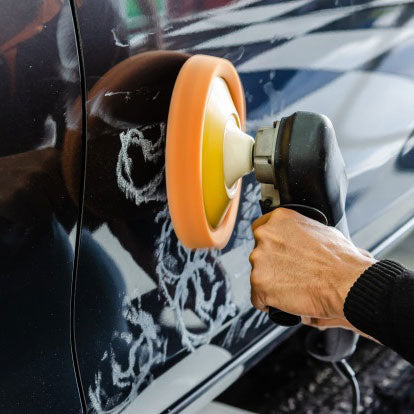Starting out as a body piercer is exciting, but it’s also be very daunting. You’ve invested in your training, studied infection control, practiced on models, and perhaps even set up your studio. But when the moment comes to pierce your first real client you may feel your palms sweat, your heart race, and doubts creeping in.
Here’s the truth: nerves are completely normal. Every piercer, from the newest apprentice to the most seasoned professional, has felt those same jitters at some point and sometimes still do. What matters is how you respond to them. Instead of letting anxiety hold you back, you can use it as fuel to sharpen your focus and grow your skills.
Here are seven key strategies to help you overcome nerves as a new body piercer, while building the confidence and presence you need to succeed in this rewarding career.
Accept That Nerves Are Normal
The first step in overcoming nervousness is acceptance. Many new piercers mistakenly believe that being anxious means they aren’t cut out for the job. But in reality, nerves are simply your body’s way of preparing you for a task that matters.
Think about it, if you didn’t care about the outcome, you wouldn’t feel nervous at all. Your anxiety is proof that you respect the art of piercing and the responsibility that comes with it.
Even experienced piercers like myself, who have performed thousands of procedures can feel a twinge of nerves when trying a new technique or performing a challenging piercing. The difference is that they’ve learned not to fight those feelings. Instead, they channel their energy into focus and precision.
Prepare Thoroughly
Confidence grows from preparation. The more familiar you are with your craft, the less room there is for doubt to creep in. That’s why one of the best ways to overcome nerves is to build a rock solid foundation of knowledge and routine.
Know Your Anatomy and Techniques
Understanding anatomy is non-negotiable. Each piercing has its own considerations: cartilage versus soft tissue, nerve placement, vascular structures, and healing dynamics. Reviewing your notes or anatomy diagrams before a client session can be reassuring. Over time, this knowledge becomes second nature, but in the beginning, it’s normal to need refreshers.
Review Tools and Hygiene Procedures
Anxiety often comes from uncertainty. You can eliminate a lot of that by creating a consistent pre-piercing routine:
- Lay out your sterilized tools and jewellery.
- Double-check expiry dates on needles and sterile packaging.
- Ensure your gloves, disinfectants, sharps containers, and aftercare sheets are within easy reach and ready.
- Walk yourself through the procedure step by step in your head.
This ritual not only reduces mistakes but also signals to your brain that you’re ready and capable.
Practice on Models
Every professional piercer started somewhere. Using silicone skins, or willing models under supervision before working on paying clients can allow you to pick the brain of another supervising piercer. These practice runs help you get used to handling tools, applying correct pressure, and moving confidently.
When you’ve rehearsed enough times, your body develops muscle memory. That way, when nerves kick in, your hands already know what to do.
Use Visualization Techniques
Visualization is a powerful mental tool used by athletes, performers, and yes, even piercers. The idea is simple, if you imagine yourself succeeding, your mind and body become more likely to follow through in real life.
Before a session, close your eyes and picture yourself setting up your workspace calmly. See yourself greeting your client with confidence, preparing the tools, marking the piercing site, and performing the procedure smoothly. Imagine the client smiling afterward, happy with the result.
The brain doesn’t fully distinguish between imagined and real experiences, so this mental rehearsal helps reduce anxiety and boosts performance. Instead of focusing on what could go wrong, you’re programming your mind to expect success.
Start with Simple Piercings
One of the best ways to overcome nerves is to start with piercings that are straightforward and relatively low-risk. Earlobes, for example, are a common entry point for beginners. They involve soft tissue, minimal anatomical variation, and are generally quick to perform.
As your confidence builds, you can gradually progress to more complex piercings, such as cartilage, nostrils, or navel—before moving on to advanced placements like surface piercings, septums or microdermals.
This gradual exposure works like climbing a ladder, each successful piercing is a step upward. With every positive experience, your nerves decrease, and your confidence grows stronger.

Focus on the Client Experience
One of the fastest ways to reduce your own anxiety is to shift your attention away from yourself and toward your client. Instead of worrying about how nervous you feel, think about how you can make them comfortable and safe.
Communicate Clearly
Walk your client through each step of the process. Explain what you’re doing, why you’re doing it, and what they can expect to feel. For many clients, especially first-timers, the unknown is scarier than the piercing itself. Your calm explanations help put them at ease.
Create a Relaxing Environment
A soothing tone of voice, good hygiene practices, and checking in regularly “Are you comfortable?” can make all the difference. When clients feel cared for, their trust in you grows and that trust feeds back into your own confidence.
Think of It as Teamwork
A successful piercing isn’t just about your technical skill, it’s a collaboration between you and your client. When you view it this way, the pressure shifts. Instead of feeling like it’s all on you, it becomes a shared experience where both of you are invested in the outcome.
Have a Mentor or Support System
Nobody becomes a great piercer in isolation. Having someone more experienced to guide you can dramatically ease your nerves.
The Value of Mentorship
A mentor can:
- Offer feedback on your technique.
- Reassure you when you’re second-guessing yourself.
- Share their own stories of overcoming nerves as a beginner.
- Step in when you encounter something unexpected.
Even just knowing that you have someone to turn to can take a huge weight off your shoulders.
Build a community
If you don’t have a formal mentor, seek out support from the broader piercing community. Online forums, professional associations, and social media groups can provide advice, encouragement, and solidarity. You’ll quickly learn that every piercer has faced the same challenges, and most are happy to share their wisdom.
Don’t Be Afraid to Ask for Help
Some beginners hesitate to ask questions, fearing they’ll look unprofessional. But in truth, asking questions is a sign of commitment and maturity. It shows you care about doing things the right way, not just the fast way.

Practice Mindfulness and Breathing
When nerves threaten to overwhelm you, your breath is your anchor. Shallow, rapid breathing is a hallmark of anxiety, but you can reverse the cycle by consciously slowing down your breath.
Try This Before a Piercing:
- Inhale slowly through your nose for a count of four.
- Hold for a count of two.
- Exhale gently through your mouth for a count of six.
- Repeat three to five times.
This technique lowers your heart rate, calms your nervous system, and brings you back into the present moment.
Mindfulness goes hand in hand with breathing. Instead of letting your thoughts race into the future “What if I mess up? What if the client notices I’m nervous?”, bring your awareness back to the here and now: your gloves, your tools, your client sitting in front of you.
Even just a few minutes of mindfulness practice before a session can make a noticeable difference in your confidence and presence.
Bringing It All Together
Overcoming nerves as a new body piercer isn’t about eliminating anxiety completely, it’s about managing it so it doesn’t control you. With preparation, visualization, gradual practice, client focus, mentorship and mindfulness, you’ll find that your nerves transform into a source of strength rather than weakness.
Remember, every seasoned piercer you admire was once in your shoes. They felt the same doubts, the same shaky hands, and the same racing heart. But by leaning into the process, they grew into confident professionals.
AND SO WILL YOU.
Nerves are not a sign of failure, they’re a sign that you care deeply about your craft and your clients. By accepting them, preparing thoroughly, visualizing success, starting simple, focusing on the client, building a support system, and practicing mindfulness, you’ll gain the confidence you need to thrive in this career.
Every piercing you perform adds another layer of experience and assurance. Over time, the nerves will quiet down, replaced by pride in your skills and trust in yourself.
Your journey as a piercer is just beginning. Embrace the nerves, they’re part of what makes you human, and part of what will make you great.
- Jaz Anna



